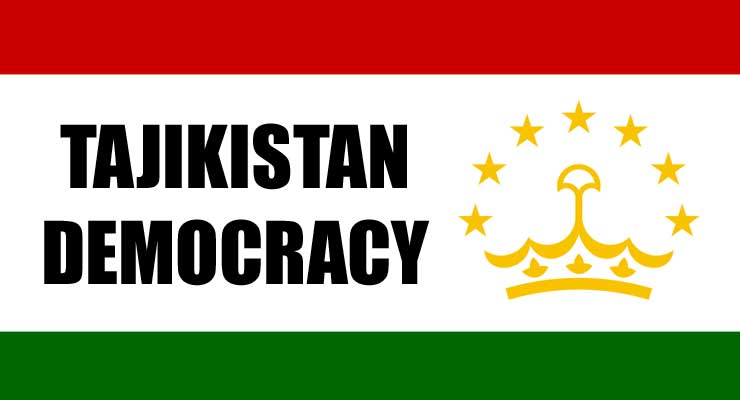
From the United Nations Office of The High Commissioner for Human Rights:
UN experts said today Tajikistan faces significant challenges in dealing with the issue of enforced disappearances.
“We leave Tajikistan with some hope and serious concerns,” a delegation of the United Nations Working Group on Enforced or Involuntary Disappearances said in a statement at the end of a five-day visit to the country. “Very little has been done to deal with issues related to truth, justice, reparation and memory in relation to the civil war that took place between 1992 and 1997, a virtually unaddressed subject in the country.”
The experts were unable to get official figures but it is estimated that thousands may still be unaccounted for among the different factions. There are allegedly also a number of unopened mass graves.
“It is unprecedented in our experience that there is so little interest in shedding light on events of this significance,” they said. “Tajikistan needs to create conducive conditions to openly and comprehensively address issues related to past violations, including enforced disappearances.”
The experts also expressed concern at information received that there have been recent cases, including of Tajik nationals residing abroad forcibly returned to Tajikistan. “In some cases, these individuals have appeared in detention in Tajikistan after a short period of disappearance; in a few others their whereabouts are still unknown,” they added, noting that the authorities have denied these allegations.
The experts also acknowledged legislative amendments adopted in 2016 related to the registration of those deprived of liberty and the notification of family members. These provisions, however, could be further improved and are often not effectively implemented. The Working Group called for the establishment of a simple, accessible and effective mechanism for families to quickly locate their loved ones.
The experts also urged the adoption of additional measures for prevention. “Some of these measures can be taken swiftly, such as the ratification of the International Convention on the Protection of All Persons from Enforced Disappearance and the introduction of an autonomous crime of enforced disappearance in the penal code. We welcome that the ratification of the Convention has been introduced in the 2017-2020 National Plan of Action among the measures to implement the UPR (Universal Periodic Review) recommendations after the second cycle,” the experts said.
The Working Group appreciated that the Government granted almost all requested meetings. “The invitation to visit the country, the openness of the Government to discuss a number of issues, as well as some legislative and institutional measures taken, are encouraging steps,” the experts said. “We also welcome that we were given access to a number of places of deprivation of liberty.”
“The visit of these places has confirmed the need to establish a centralised nation-wide system of registration of all persons deprived of liberty as provided for in the Declaration on the Protection of All Persons from Enforced Disappearance. The absence of a centralised digital system renders inaccuracies frequent and abuses possible,” the experts said.
The experts were granted a short visit to Vahdat prison, where – after rioting prisoners killed three guards and three other prisoners – the guards responded with force killing 27 inmates. “A thorough, impartial and independent investigation, in accordance with international standards, is urged to determine the circumstances in which the inmates were killed and how their remains were identified,” they stressed.
During the visit from 1 to 5 July, the delegation met with Government officials, relatives, lawyers and representatives of civil society organisations.
A final report on the visit will be presented to the UN Human Rights Council in Geneva in September 2020.
David Anderson says
Tajikistan is a strange place: their language, unlike many of the ex-USSR stans is based on Persian and quite similar. Many of their men work in Russia, unhappily, leaving lonely women at home. Its a mountain honor culture and politically, deeply weird and oppressive.